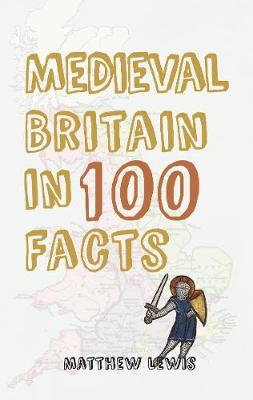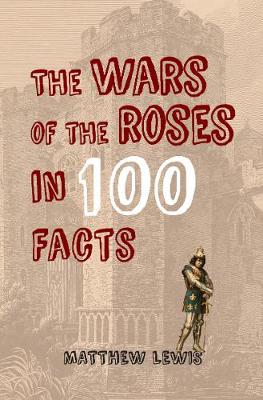In 100 Facts
2 total works
The medieval period is often thought of as the Dark Ages, a period of cultural stagnation and little economic and political advancement. However, Britain in this period survived invasion upon invasion, absorbing aspects of Anglo-Saxon, Viking and Norman culture. Britain developed from a small and fractured island into a...Read more
The medieval period is often thought of as the Dark Ages, a period of cultural stagnation and little economic and political advancement. However, Britain in this period survived invasion upon invasion, absorbing aspects of Anglo-Saxon, Viking and Norman culture. Britain developed from a small and fractured island into a more unified and powerful nation that could hold its own in European politics.
Medieval Britain in 100 Facts covers this extensive period of change, guiding us through the key events, such as the many invasions and internal conflicts, and the key personalities. Matthew Lewis challenges our misconceptions about this period of British history, condensing this huge story into easy-to-read, bitesize chunks. He examines some of the most important aspects of the Middle Ages, from its formation after the Roman exodus, to the Norman invasion, to its eventual decline during the Wars of the Roses.
Medieval Britain in 100 Facts covers this extensive period of change, guiding us through the key events, such as the many invasions and internal conflicts, and the key personalities. Matthew Lewis challenges our misconceptions about this period of British history, condensing this huge story into easy-to-read, bitesize chunks. He examines some of the most important aspects of the Middle Ages, from its formation after the Roman exodus, to the Norman invasion, to its eventual decline during the Wars of the Roses.
The Wars of the Roses were a series of brutal conflicts between rival branches of the Plantagenet family - the Lancastrians and the Yorkists. The wars were fought between the descendants of Edward III and are believed to stem from the deposition of the unpopular Richard II by his...Read more
The Wars of the Roses were a series of brutal conflicts between rival branches of the Plantagenet family - the Lancastrians and the Yorkists. The wars were fought between the descendants of Edward III and are believed to stem from the deposition of the unpopular Richard II by his cousin, Henry Bolingbroke, who became Henry IV. The wars were thought to have been fought between 1455 and 1487, and they saw many kings rise and fall as their supporters fought for their right to rule.
The Wars of the Roses in 100 Facts covers this dangerous and exciting period of political change, guiding us through the key events, such as the individual battles, and the key personalities, such as Richard, Duke of York, and the Earl of Warwick, known as 'the Kingmaker'. Matthew Lewis takes us on a tour through the Wars of the Roses, fact by fact, in easy-to-read, bite-size chunks. He examines some of the most important aspects of this period, from the outbreak of the conflict at the First Battle of St Albans, to Henry VI's insanity, and the character of Richard III and his final defeat at the hands of Henry Tudor.
The Wars of the Roses in 100 Facts covers this dangerous and exciting period of political change, guiding us through the key events, such as the individual battles, and the key personalities, such as Richard, Duke of York, and the Earl of Warwick, known as 'the Kingmaker'. Matthew Lewis takes us on a tour through the Wars of the Roses, fact by fact, in easy-to-read, bite-size chunks. He examines some of the most important aspects of this period, from the outbreak of the conflict at the First Battle of St Albans, to Henry VI's insanity, and the character of Richard III and his final defeat at the hands of Henry Tudor.

